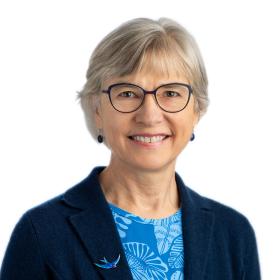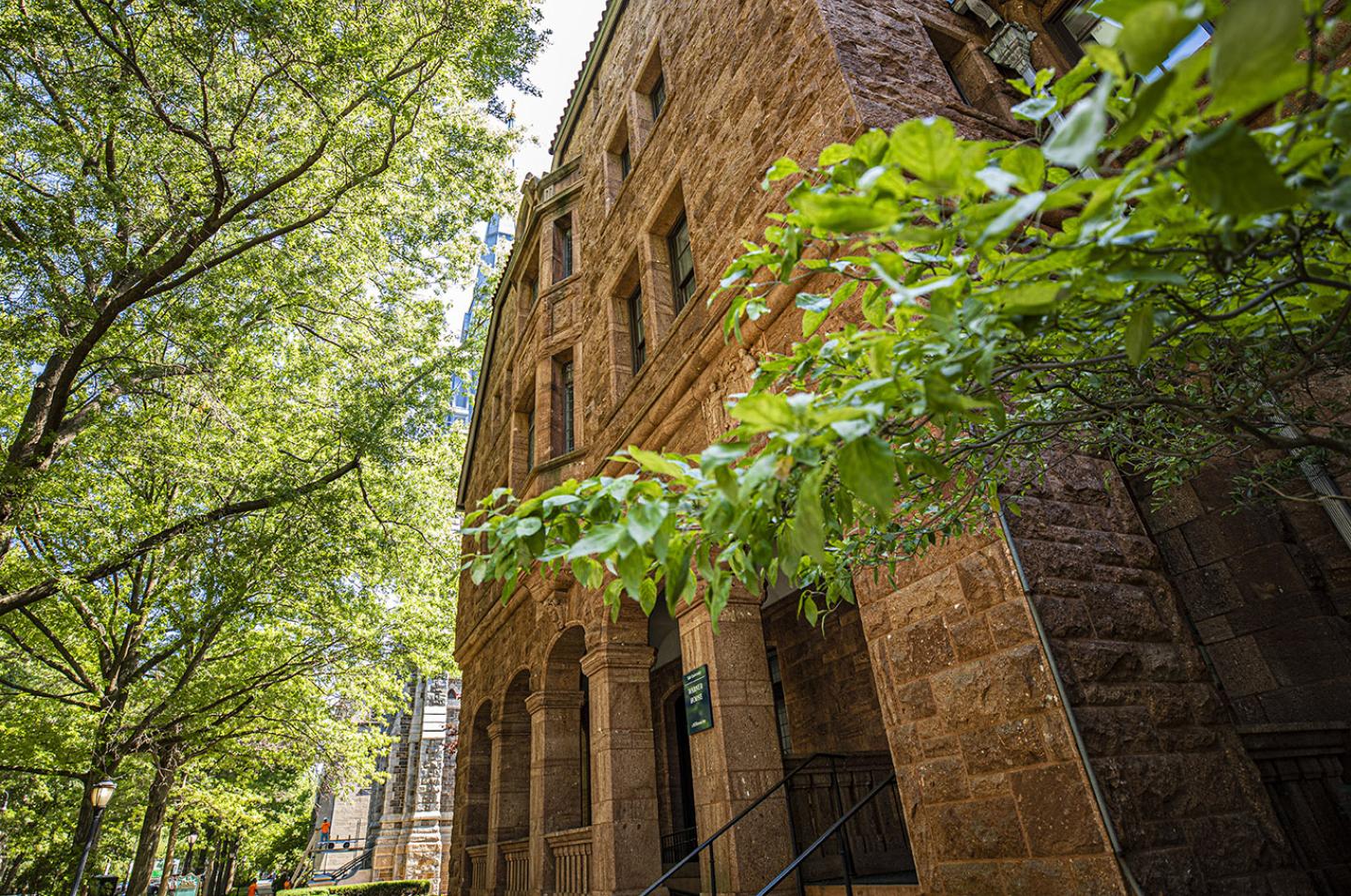



Lynn Cooley serves as dean of Yale Graduate School of Arts and Sciences. She is also vice provost for postdoctoral affairs, C.N.H. Long Professor of Genetics, and professor of cell biology and of molecular, cellular, and developmental biology.
In her role as dean, she leads a school of 3,500 students spanning 70 programs. She participated in the following Q&A with Yale’s Office of Development.
What would you like readers to know about the Graduate School of Arts and Sciences (GSAS)?
The Graduate School stands at the very heart of Yale’s mission. We educate graduate students to seek answers to life’s most challenging questions and to push the boundaries of knowledge. They come to Yale with a passion to investigate topics that have caught their curiosity. Here they have the chance to pursue their interests deeply in the company of engaged scholars of all kinds. We have students exploring the basic building blocks of life and others making advances in quantum computing. Some are researching lost civilizations while others delve into the economic and political systems that define the modern world.
PhD students are critical to advancing discovery. With guidance from our faculty, graduate students conduct research in laboratories and archives, mentor and teach undergraduate students, and knit together new ideas across disciplines. Put simply, the research we do across the university would be impossible without them.
To enable world-class research, we provide all PhD students with financial support that covers tuition, a living stipend, health insurance, and other resources. We attract the brightest minds from around the world to our graduate programs to spend five or more years immersed in becoming scholars. We invest not only in their education, but also in the promise their discoveries hold for the benefit of humanity.
How are alumni and friends involved at the Graduate School?
Our alumni have pursued careers in nearly every sector, including academic research. We are fortunate to have many enthusiastic alumni volunteers who help students through mentorship and career exploration. In addition to sharing their time and insight, many GSAS alumni and friends help us support students through philanthropy. Funding for our PhD students comes from a combination of university endowments and external grants. As grants shift, donor-funded fellowships provide stability and the freedom to work across departments, wherever a student’s curiosity leads.
What’s ahead in your third term as dean?
We live in a time in which the value of higher education is being called into question. It is crucial that we demonstrate the impact of graduate education and its value to humanity. For example, small discoveries in the lab lay the foundation for transformative clinical breakthroughs. The public might hear about a blockbuster new drug from a pharmaceutical company ad, but they probably know less about the fundamental research taking place at universities like Yale that enabled its development. We can do a better job of telling that story.
My continued focus is on gathering amazing, curious people from all over the world—as graduate students and in our summer undergraduate research and post-baccalaureate programs—and providing the environment for them to flourish. One way we can do this is by fostering collaboration. This fall, we will launch a cohort model that brings together students using data science across a variety of departments to share ideas and advance the field. It’s an exciting way to stimulate discovery at the intersections of established disciplines, which I hope to develop across other priority areas as well.
